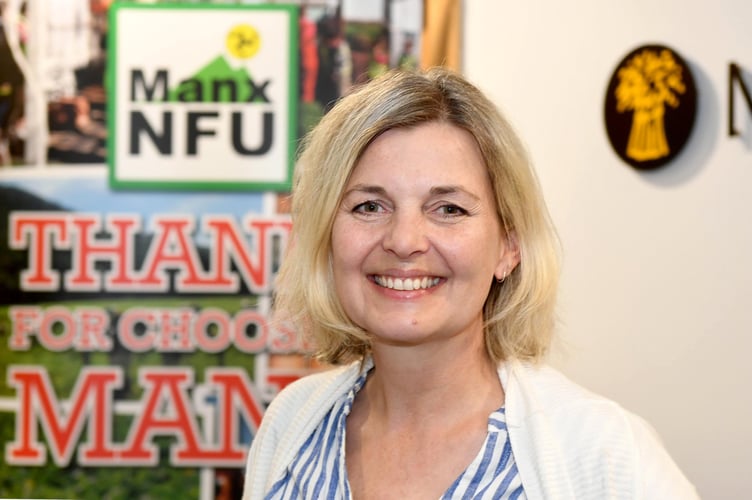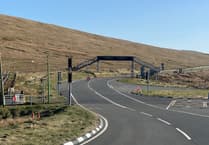It would be ‘catastrophic’ for the farming industry if announced hikes in charges to collect and dispose of fallen livestock are not scrapped, says the Manx National Farmers’ Union.
In a stand-off with government, the Manx NFU has asked its 250-plus farmer members to withhold payment of invoices for fallen stock until the Department of Infrastructure agrees to renegotiate the charges.
Infrastructure Minister Tim Crookall told the House of Keys that the increases - many of them of more than 100% - have been introduced from July 1 to offset the £500,000 deficit of running the animal waste plant.
And he said the intention was to bring in two further increases.
Manx NFU general secretary Sarah Comish said there had been ‘absolutely no consultation’ over the price hikes.
She said: ‘Farmers should not be penalised for the misfortune of losing livestock.
‘Farmers should not be expected to provide a full cost recovery to the DoI.’
She said she was ‘appalled’ by the attitude of the department and that if the charges were not revisited it would be ‘catastrophic’ and ‘another nail in the coffin for the industry’.
Mr Crookall told MHKs that the price of disposing of a bull would increase from £53.55 to £152.70, and the charge for cows and horses would rise from £48.22 to £102.33.
The charge for pigs will increase from £6.43 to £10.79, sheep £5.36 to £10.14, calves and goats £5.39 to £9.42 and a bag of lamb carcasses from £2.14 to £5.91. The charge for collecting and disposing of donkeys will rise from £26.78 to £58.80.
The Minister said it cost £615,000 annually to operate the animal waste processing plant but the income from the service was only £117,000. He said half of the income came from farmers for fallen stock and the other half from the Meat Plant in Tromode and its waste.
The animal waste processing plant at Richmond Hill opened in 2008 and since then by law all fallen stock on farms has to be collected by the DoI and disposed of at that facility.
Ms Comish said the verbal agreement at that time was that the farming industry would never be expected to pay the full cost but only the cost of providing the collection service.
She said until now the department had always consulted with the industry about any increases in charges.
And she said this was only the first of three phased increases in the fallen stock collection charge, with the department intending to hike them by the same amount again over three years until it recovers the full cost of operating the animal waste processing plant.
Having learned of the ‘alarming’ planned hikes the Manx NFU president Ean Parsons pressed for a meeting with the DoI where he said the proposed rates were not acceptable.
He presented alternatives that the increases should be inflation-only or that the legislation is changed to allow farmers to bury fallen livestock on their farms.
With the department refusing to shift its position, the union asked it members to not pay any invoices relating to fallen livestock that came in after July 1 until the fees are renegotiated.
The DoI under current legislation are obliged to collect fallen livestock.
Ms Comish said the DEFA Minister Clare Barber and senior managers have been working on this issue on behalf of the industry and there were indications that the DoI was prepared to revisit the situation.
In the House of Keys, Arbory, Castletown and Malew Jason Moorhouse described the charge increases as ‘massive’.
The Infrastructure Minister said: ‘The department has significant challenges this year to deliver its budget.
‘The normalisation of animal waste charges was identified as one of many measures which have to be brought up to date this year if the department is not to overspend.’
In a statement, the DoI said: ‘The Animal Waste Processing Plant (AWPP) is integral to the Manx farming industry. It has, however, produced an average annual net loss of just under £500,000 over the past five years.
‘In common with departments across government, the DoI, which runs the plant, has significant challenges in meeting this year’s budget.
‘As prices for using the AWPP have not increased for some time, a rise is considered an appropriate measure.
‘The government recognises the proposed increases have caused concern, and is committed to continuing to engage with the Manx NFU to further consider these proposals and the impact they would have on the local agricultural industry.’

.jpeg?width=209&height=140&crop=209:145,smart&quality=75)
.png?width=209&height=140&crop=209:145,smart&quality=75)


Comments
This article has no comments yet. Be the first to leave a comment.